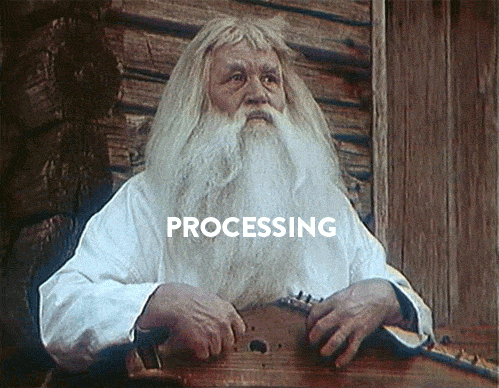Man, there has been a lot written about the Learning Management System (LMS) as summer (norte-centrismo) draws down this year. Or maybe it’s always like this, and I am only now paying attention… I have some noise I would like to add, but as I started to jot my thoughts felt compelled to cite some of what has recently been written, and quickly realized that even a simple list would be longer than my own contribution. So before (or maybe instead of) writing that other post, I’m going to try to capture at least some of what’s been in my feed the past few months. The intention is to minimize my own reactions and to treat this as something like an impressionistic bloggy lit review.
I shouldn’t bury the lede. I have two reasons for this interest. One, earlier this year I co-wrote an article with Jim Groom that featured a critique of the LMS. Maybe I am just thick-headed, but not much of what I have read since has really changed my feelings on what we wrote there. The second reason is that here at my home institution I was tasked with writing up some recommendations for an LMS, and am now coordinating an LMS development pilot project. And while a key piece of both my recommendations and the resulting pilot is a commitment to reducing our dependence on the LMS, I did not feel comfortable or confident imposing my own predilections on the entire university. In other words, though I would have loved to try to banish the LMS, I instead am going to be pushing one. A humbling blast of cosmic (in)justice.
So before I rant some more, a sampling of what I’ve been reading over the past couple months, more or less in the order that I’ve encountered it…
The Post-LMS LMS – When I read this piece last summer, I was struck by how all of the major LMS vendors (who each had their major summer conferences more or less at the same time) seemed to be running away from the “learning management system” as a construct. It was as if the LMS had become a technology that dare not speak its name. Instead, we are promised ‘what analysts call a “learning ecosystem.” Not a black hole where content is dumped at one end of the semester and grades at the other, but an open platform where faculty members are free to browse and embed the tools they want to use.’ This theme would be taken up by others.
LMS Futures – this post wrapped Michael Berman’s seven-part series, which must have seemed rather provocative when he presented it at a Blackboard conference.
Michelle Pacansky-Brock, A Threat of Higher Ed’s Love Affair with Closed-LMSs riffs off Berman, emphasizing the “mental model” resulting from the reliance on closed platforms, and the failure to provide graduates with essential skills and values with regards to technology.
Audrey Watters, Beyond the LMS is the sort of rich, passionate and historically-grounded critique that Audrey does so well. There is so much strong stuff here, it is impossible for me to summarize. The conclusion is a call to action for our field: “Ed-tech must be not become an extraction effort, and it increasingly is. The future, I think we’ll find, will be a reclamation project.”
As Connected Courses lurched into action, Jim Groom posted a broadside against the LMS and a fairly detailed overview of where his vision of networked, user-owned spaces on the open web stands right now. Besides the post itself, there were some interesting comments and Twitter threads in response that would preview future posts.
Jared Stein ended up in an explicitly declared throwdown with The Bava. Jared provides a detailed account of his recollection of how the LMS came to be introduced into higher education, and his own journey with a wide range of open and managed environments. (Special bonus comments from a weary Scott Leslie.) And Mike Caulfield followed up with a similar narrative, The LMS in Historical Perspective.
Another response to Jim’s provocation was D’Arcy Norman’s On the false binary of LMS vs. Open. D’Arcy is someone with a very long and kickass history on the open web, and he has also led an impressive LMS review and implementation that is a model for engaging the university. The dude has some well-earned cred. And as we will see, the post clearly resonated with a lot of people and prompted a lot of interesting discussion. (That said, I take issue with some of how D’Arcy frames the issue, and the rather cartoonish depiction of LMS critics, but I will hold that for my phantom follow-up post). Some of the responses I saw…
Sheila McNeill, Living with the VLE dictator: “Like D’Arcy, I work with and support the need for the boring, but oh so important administrative functions that our iteration of Blackboard support and that are needed for teaching and learning just now. If we got rid of Bb, I think it is fair to say there would be a fair amount of chaos for our students and staff alike. I have been in several meetings over the last year where a new shiny (and sometimes not so shiny) thing has been talked about with almost awe and wonder. This despite the fact that it just duplicates what are already doing within Bb but without the crucial integration “thangs” that automagically assign modules to students and staff. In these cases I have very much been advocating sticking to the ‘devil we know”, and trying to have a more holistic conversation about learning, where and how it (could) takes place in our context.”
Tannis Morgan’s A Response to D’Arcy Norman on the LMS/Open Binary: “…the question has to be asked -– is innovation a nice-to-have, or is it essential to the sustainability of the institution, who exist to provide a meaningful learning experience for students that is different from the bigger institutions? For us, the LMS is like a big comfy lay-z-boy that you can’t get out of, even though you probably should.”
Maha Bali’s post ‘about contextualizing our “why” and how we have different “whys”, and because of that, we have different “how”s and “what”s and that it’s important to be clear on all of that when we are discussing something… like why we do or do not want to use LMS or Twitter.’
Phil Hill (who of course is a contributor to e-Literate, a steady source of LMS and ed tech analysis) responded with LMS and Open: The false binary is based on past, not future markets, arguing that “public commentary focuses on where the LMS has been rather than where it is going”. Phil followed up with a more detailed overview of a more open, interoperable future, Opening Up the LMS Walled Garden.
George Kroner also envisions a more open future for the LMS: “Maybe learning tools of all types and sizes – but external to the LMS – will support every long-tail instructional desire imaginable while assessment results feed back into the LMS gradebook. Maybe the LMS will be the storage mechanism for learning analytics as well, but it is more likely that it will become only one source of data feeding into another system better-suited for the task.”
I will be watching this emerging theme of the “new LMS” with interest. And doubt I will be lacking for reading material. Since I began typing this list an hour ago, I had Tech Advances Fuel LMS Identity Crisis cross my streams. If this more flexible and fluid open architecture indeed comes to pass, and if it can be implemented at a small and resource-constrained school like mine, I will be delighted and relieved. Then again, I feel like I’ve been to this rodeo and heard this stuff once or twice before.
Matt Crosslin was less swayed by D’Arcy’s (and Ted Curran’s) arguments: “All of the pros Norman and Curran point out about the LMS I find to be cons in actual daily usage based on nearly 10 years of designing in various LMS tools.”
And just yesterday, this from David Kernohan, riffing off of Audrey’s talk and responding to some of the themes above. The post is described by Rolin Moe as “an astounding, dense yet attention-demanding assessment of the history/future of the VLE”, and as we would expect David refuses to ignore the political and cultural dimension. “I wonder if both institution and system have been driven to current norms by a pressure for speedy and reliable ease of use. To manage the growing administrative burden in a newly massified and customer focused higher education.”
If it wasn’t readily apparent, I followed no methodology here. This post will likely be subject to repeated updates. What did I miss? Where did I go wrong?


No one gets sacked for buying IBM, so everyone keeps on buying an LMS because the alternative is……?
Show me a University which would be happy removing a system from its portfolio.
Can I imagine life without a VLE, yeah, so easily it hurts.
Problem : we live in an Adam Smith world, and a tool needs to do a job as we crank up the production line. If you take the t-dashers out the system then however will the i-dotters know what to do?
If you leave a gap, will it be filled, or could it be that we filled a gap which didn’t exist.
Also, nice new theme. Like it
Beautifully put.
Wonderful post Brian. My online world has fallen to peices since Google effectively killed RSS readers. Sorry to have missed this at the time it was posted. Yours is a wonderful update for people like me, still stuck back in the party years of 2004. Before I knew of this post and all the discussion going on around it, I wrote up my own look-back/look-forward. Nothing new for old timers though 🙂
http://leighblackall.blogspot.com.au/2016/02/walking-plank-of-platforms-into-sea-of.html
That’s crazy comprehensive and a reading list for a long winter’s evening. I’ve been following the discussion with a modicum of interest as Lane CC is pretty much locked into Moodle. Back in the early 90s, online composition teaching was considered pink collar offshore work that full timers didn’t have to bother to learn how to do. However, I learned tech thrashing my way through all those early iterations of Web CT, Bb, then Moodle. Now ironically I’m a full timer literally teaching Moodle and other tech to the same duffers who refused to learn tech, esp. LMS platforms back in the day when it was equated with garbage pickup. Which is to say there was and still is a whole cultural/political study to be had here down in the black hole of walled gardens.
At Lane CC we are definitely in if it ain’t broke don’t fix it mode. Meanwhile, as Faculty Tech, I’m still teaching an aging professoriat social media 101 and drumming the “a domain of one’s own” song softly in the background.
None of this addresses your question, but you know, any weirdo can talk to you on any random topic she wants when you insist on your own domain and throw your thoughts out there on the Wide Open Web!
manual trackback because the interpipes didn’t auto do stuff.
http://darcynorman.net/2014/09/30/systematic/
I was really surprised at the amount of whatever happened after that post. I’d have spent more time carefully describing stuff if I’d have thought people would read/respond/react to it. more to come eventually.
Nice post. This is a very helpful summary and gloss. (And thanks for the kind words about e-Literate, as well.) FWIW, I put my two cents in as well a little while back: http://mfeldstein.com/false-binaries-walled-gardens-moneyball/
Also, Brian – if you promise by the time you’re as old as the fella in this post’s featured image – that you’ll look like him, all your LMS work will be forgiven.